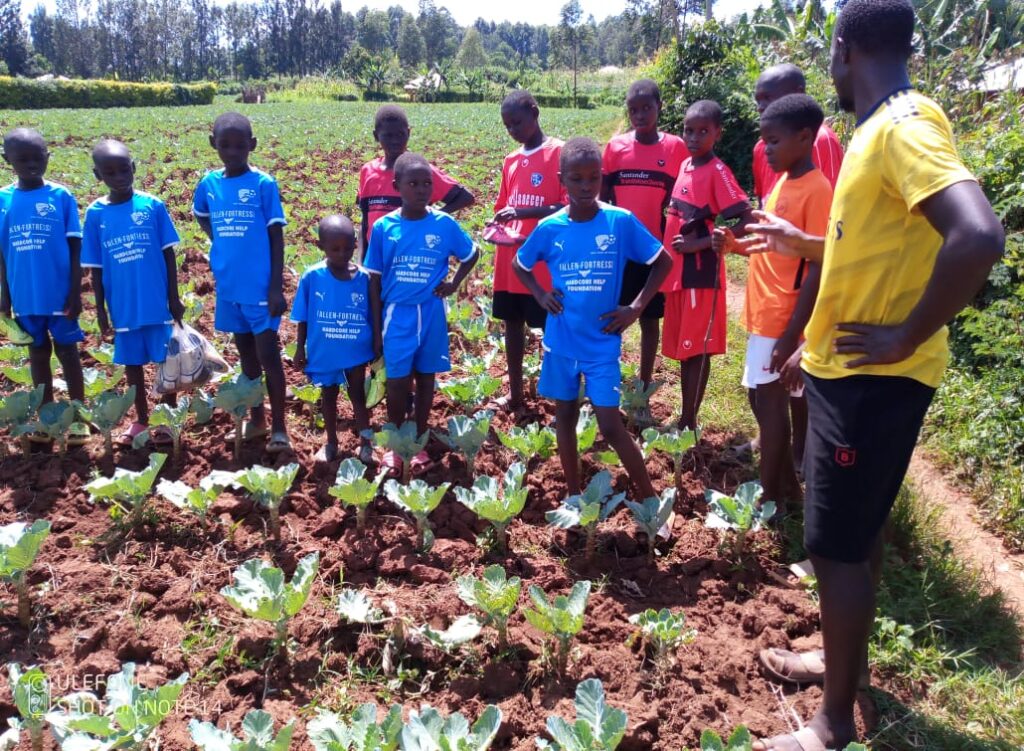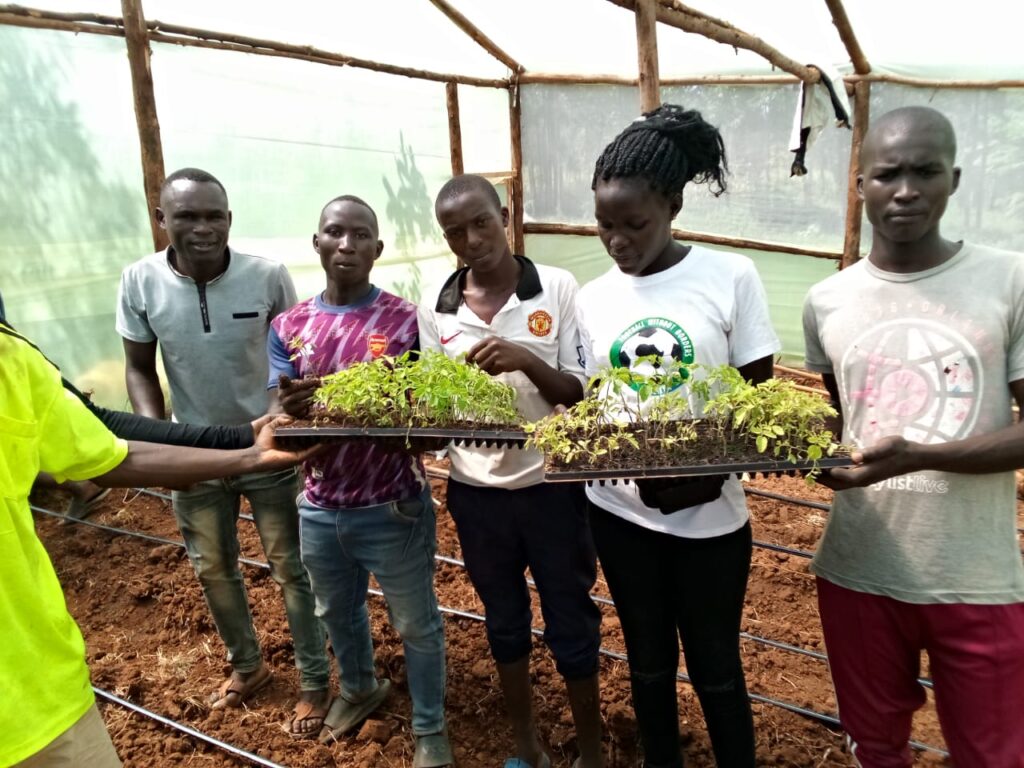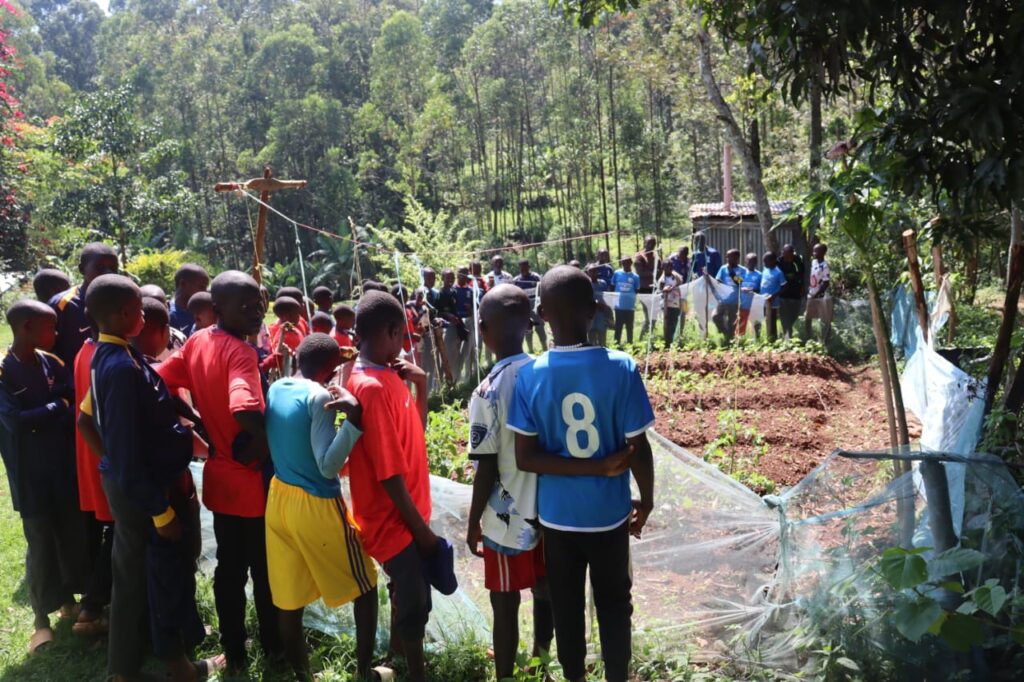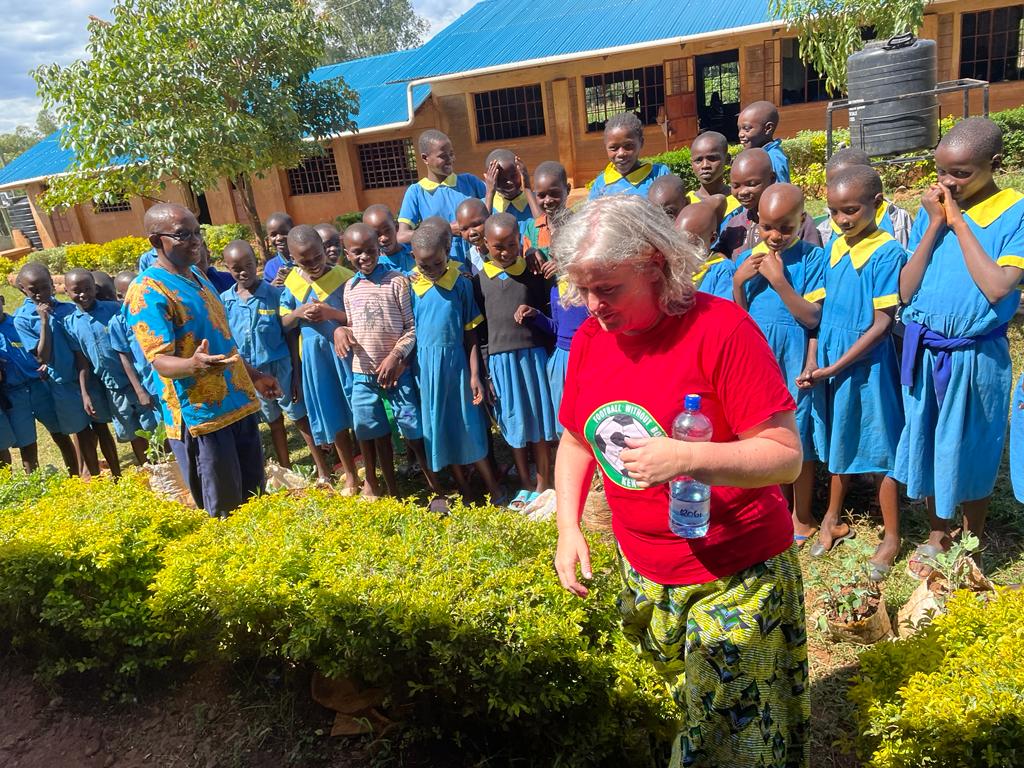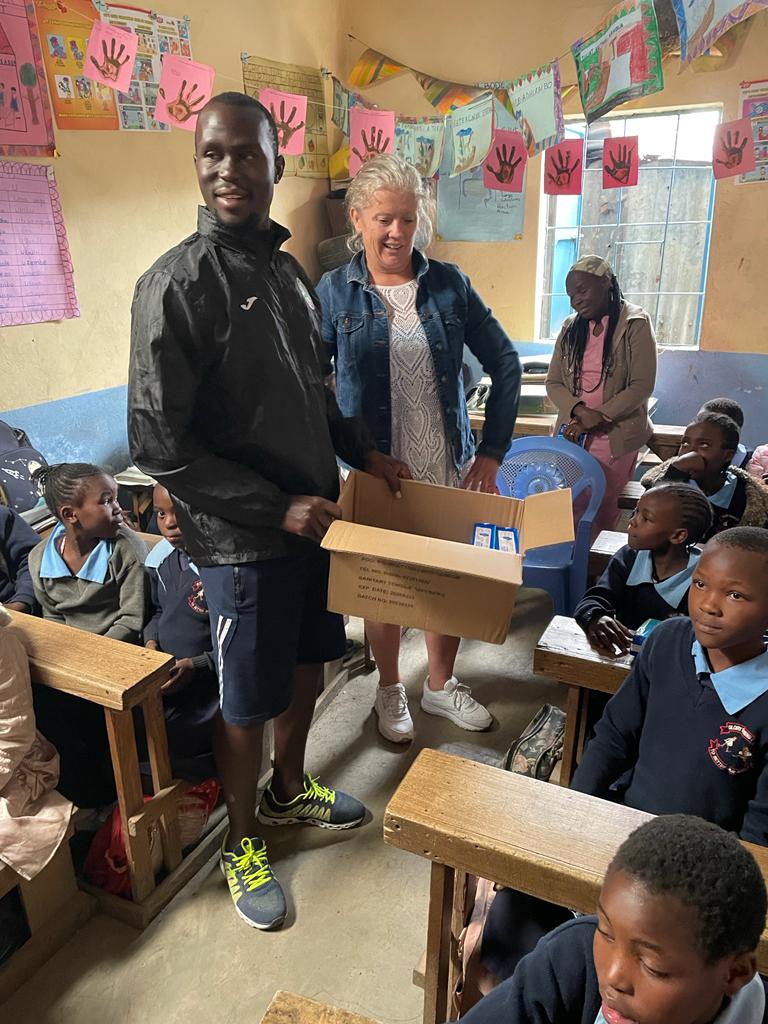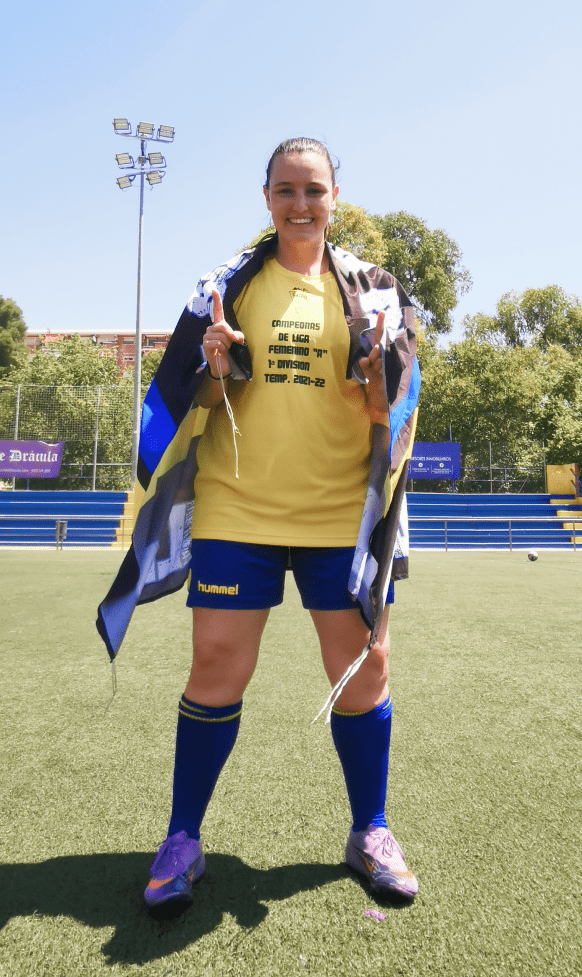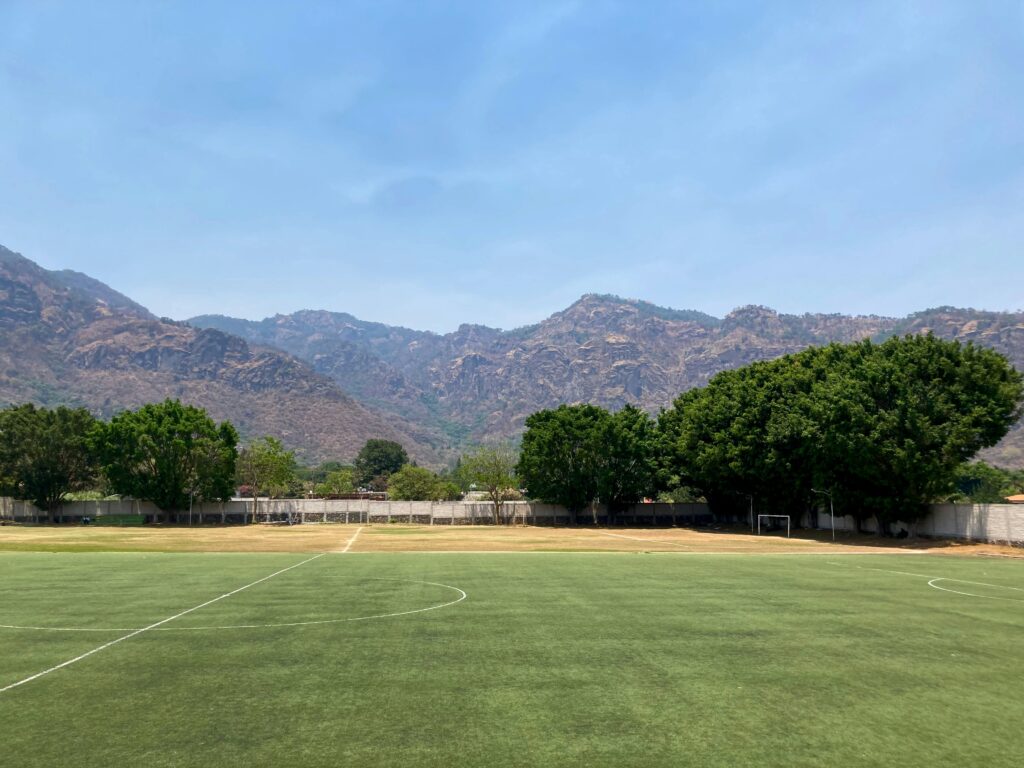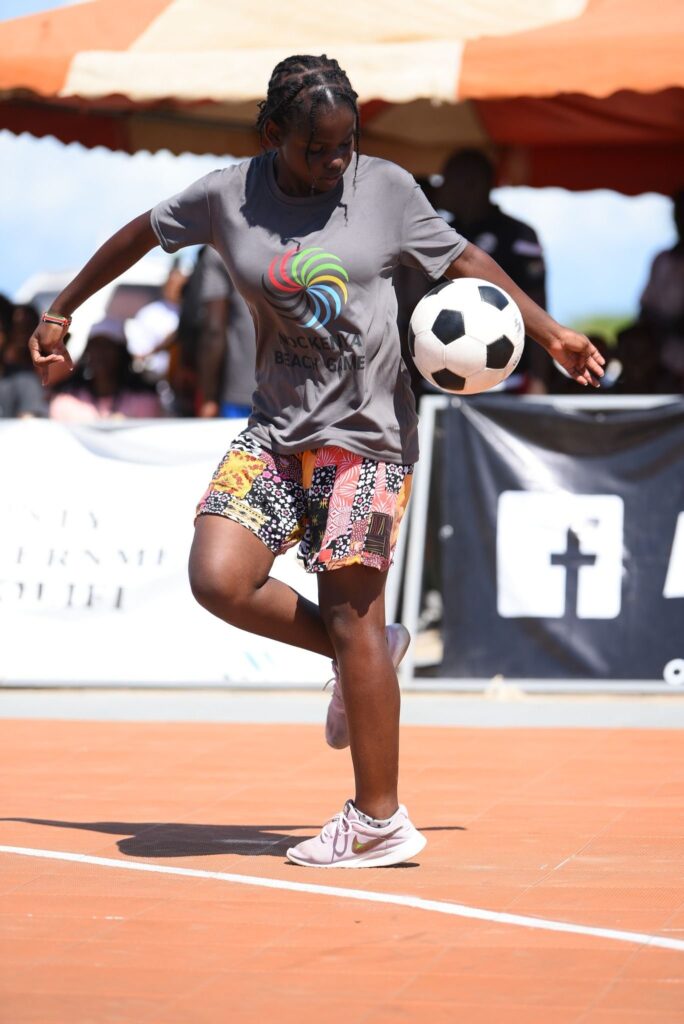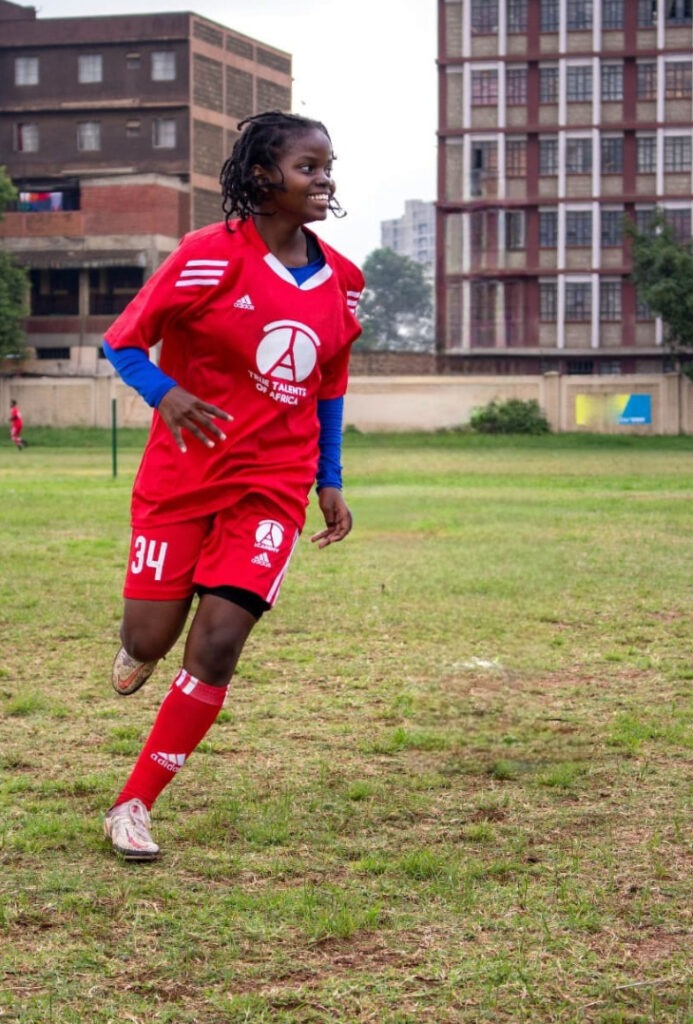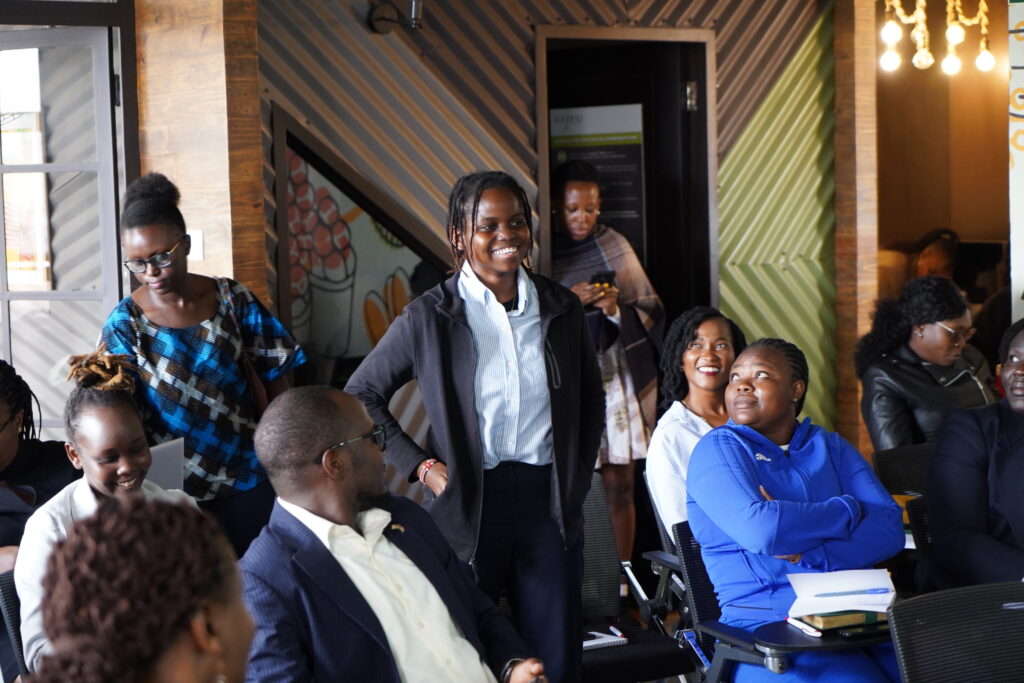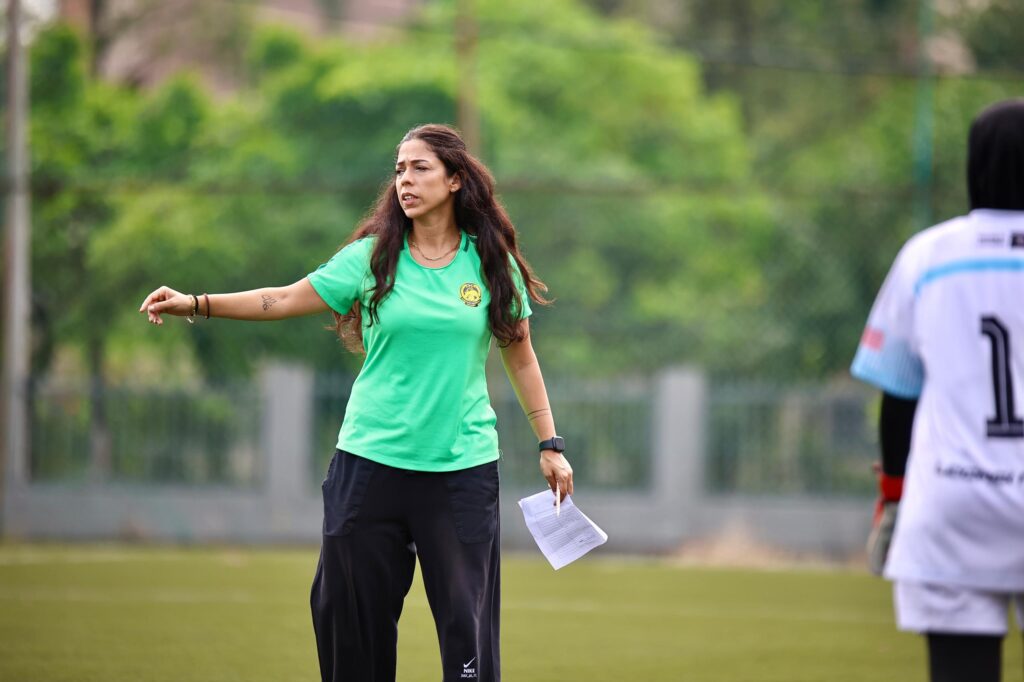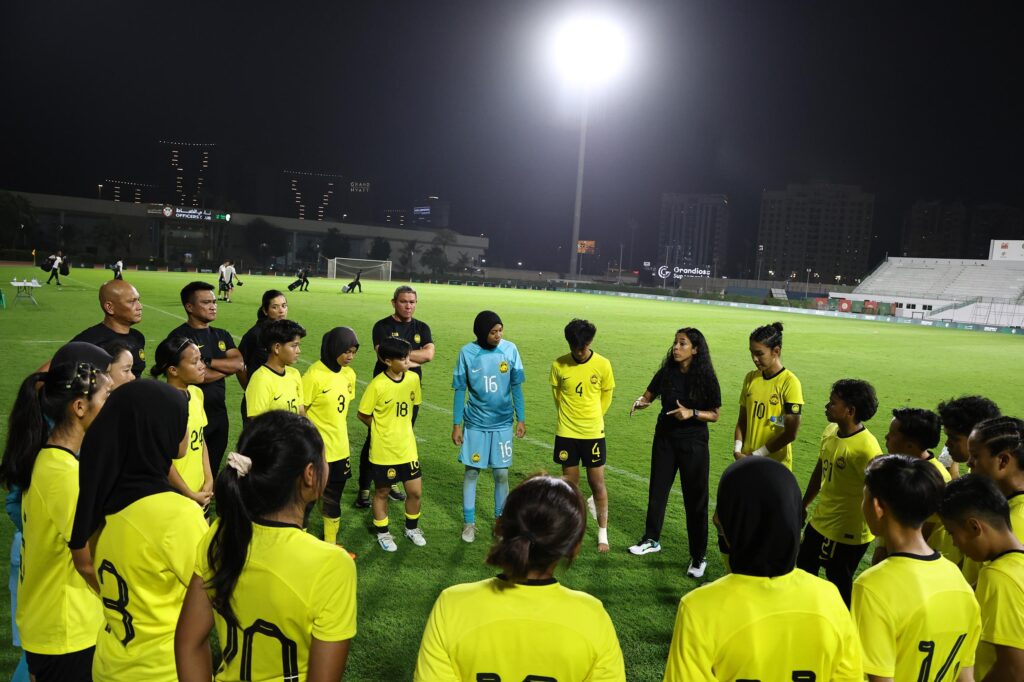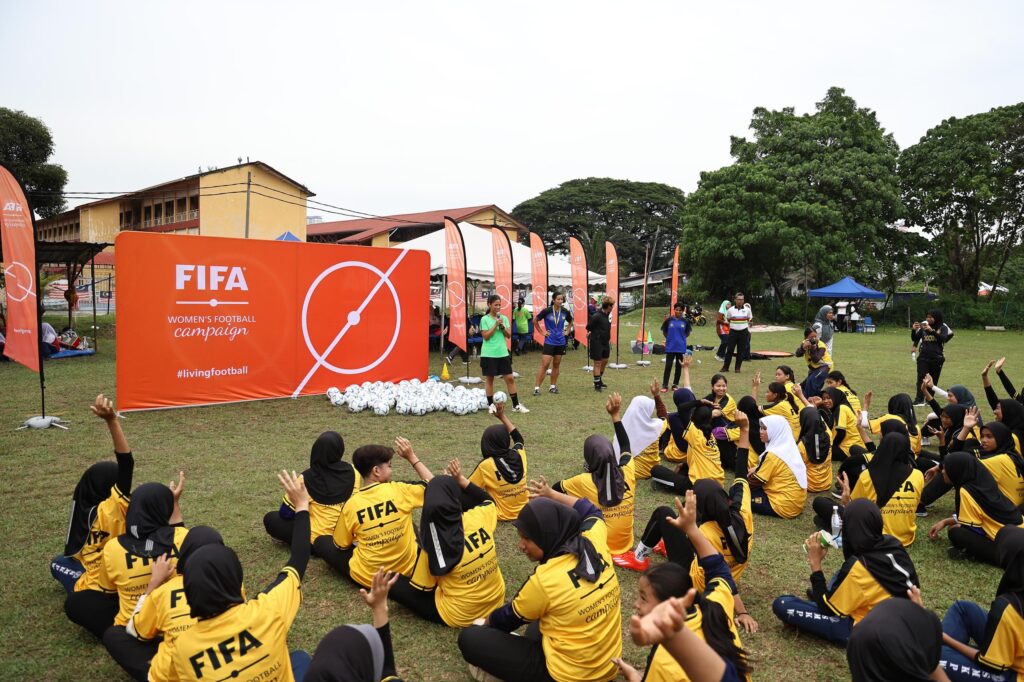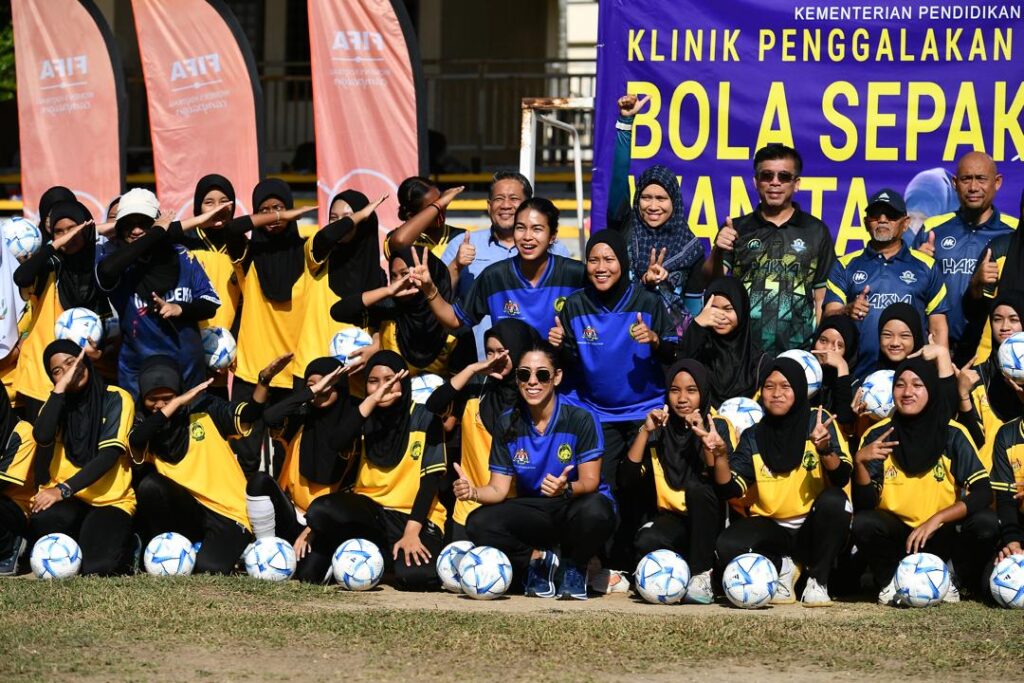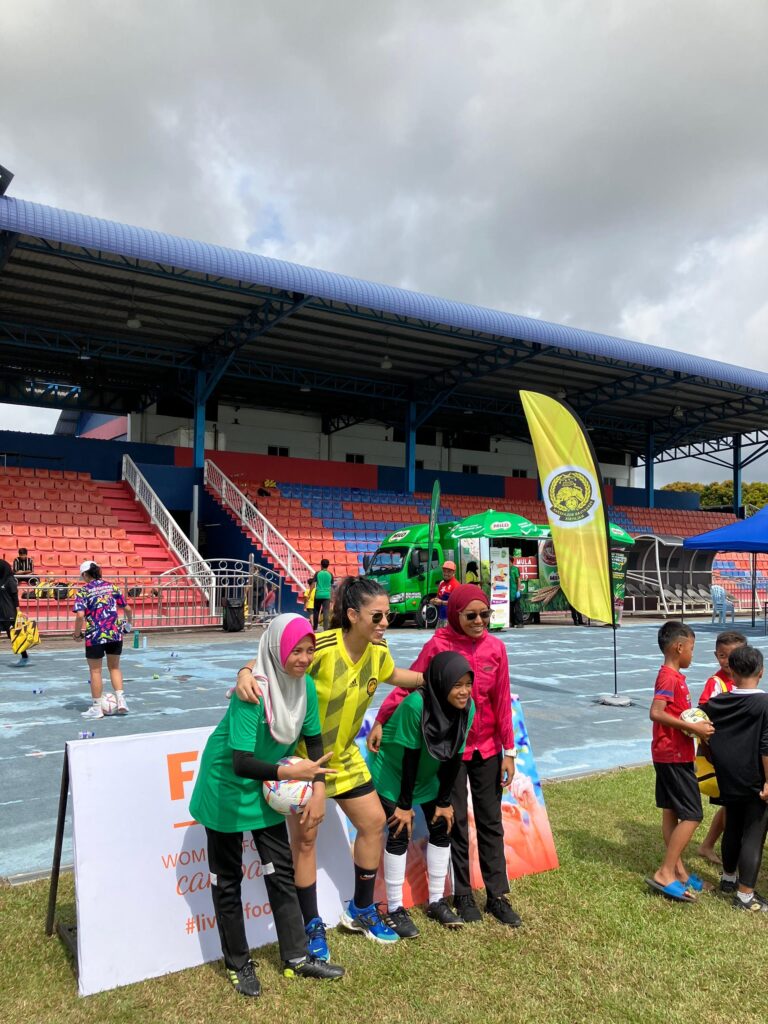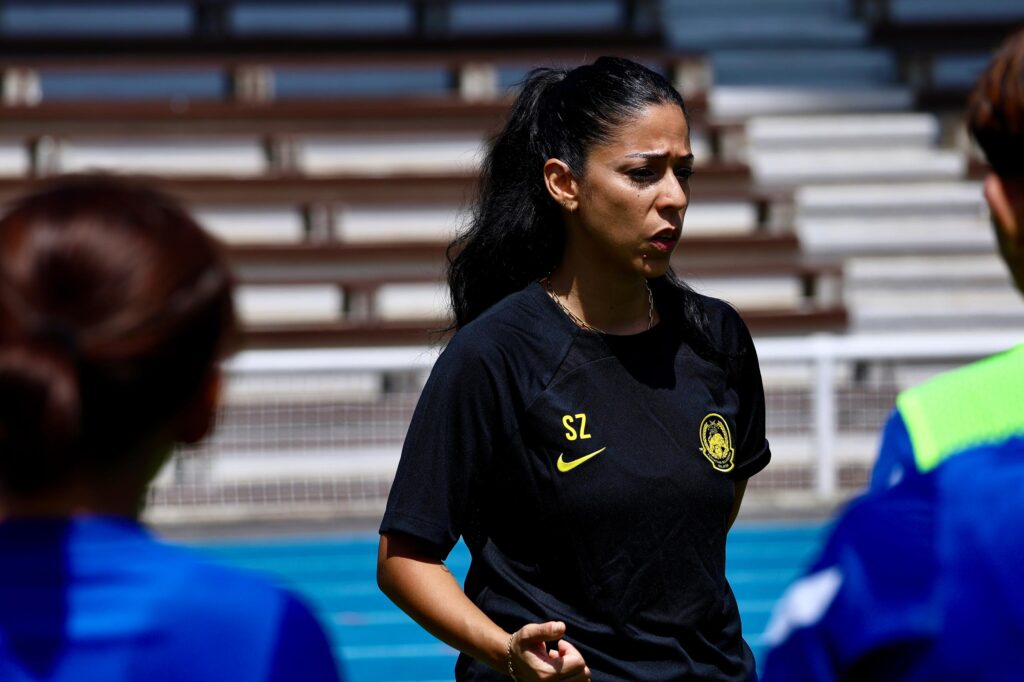In the heart of Cameroon, where dreams of young girls taking to the pitch were often met with closed doors, La Ligue D’Égalité emerged as a beacon of change. Before its creation in 2022, organized competitions for girls at the grassroots level were virtually nonexistent, leaving countless aspiring players without a stage to showcase their talent or to quench the thirst that comes with falling in love with a sport. But through the vision of Petrichor and the backing of La Liga, a revolution quietly began—one that was not just about football, but about rewriting the narrative for girls in sport. More than a league, it became a movement, forging pathways for young players to step onto the field with pride, knowing that their game mattered.
For Jurian Van Den Berg, one of the driving forces behind this initiative, the key to lasting change lies in community. Petrichor doesn’t just run a league; it weaves a network, uniting teams and individuals who share a relentless passion for advancing girls’ football. This interconnected system fosters professionalism, builds local leadership, and instills the structures needed for the game to thrive—far beyond any single season. It’s this foundation that makes La Ligue D’Égalité more than just a moment in time; it is a blueprint for sustainability, ensuring that the girls who play today will inspire the generations that follow.
Jurian took a break from the pitch in Cameroon and South Africa to discuss this impressive initiative with the Bonito Platform.
Bonito: Hi Jurian, we are just so excited to have you on the platform today to discuss what we think is a very important and model initiative. Tell us about how your passion for football began and at what point did you realize its potential to make a positive change in the world?
Jurian: Thanks so much for having me to discuss the Beautiful Game! Growing up in Cameroon, Africa, football was all around from me from the moment I could walk. Soon, I started to play with the local Cameroonian kids my age and my love for the game just grew and grew. Especially playing on the dirt and sand fields of the neighborhoods gave me a unique experience with football. You don’t need pristine pitches or balls to enjoy football.
Just saying that football was around from the moment I could walk shows the reach that the sport has, not just in Cameroon, but worldwide. Positive change can start small by just forming friendships which is what happened for me. Throughout my life I realized football creates connection which gives a huge opportunity for change and that is how it became a passion.
Bonito: In almost every corner of the planet, one sees young people playing football- Why do you think football evokes such powerful sentiments with such a broad range of people all over the world?
Jurian: Football does not require a certain body build or a certain level of economic stature to enjoy. Every little boy or girl becomes equal when they start playing together, be it on the great fields in the western world or the sand pitches in Africa. All you need is a ball and four sticks for goals and you are set.
Bonito: Tell us about how La Ligue D’Egalite came about in Cameroon? It really feels like a model for how to build a successful structure for girls football in Africa.
Jurian: La Ligue D’Egalité started in 2022 when Petrichor wanted to find a solution to the fact that there were no organized leagues for girls teams in the country. The only women’s leagues are the pro leagues. However, at the grassroots level, there was nothing. Petrichor and La Liga got in contact and shared a vision to promote girls’ football and the partnership was born. The first league started with 6 teams and grew to 10 in the second edition. Now, there are teams coming from multiple regions of Cameroon, hundreds of kilometers away, to play in the league. The past editions, the categories consisted of U13, U15, and U17 and impacted 400-500 girls from different communities.

Bonito: You have a unique approach with building the league there- can you tell us about how your program is built to be successful in the long run?
Jurian: The biggest reason why it is built for the long run is that Petrichor is a community network of teams and individuals putting an importance on girls football. Petrichor is an association where teams can join so that both parties can help each other. This mutual benefit is the key to growing women’s football here because it is building structure and professionalism. Through this structure, the league will always be finding and pulling more people who have a passion for women’s football. La Ligue D’Egalité teaches these teams and individuals what it means to run a football organization well, as well as professionalism in being on time with the right people and respecting the regulations. By growing girls football at grassroots level, the league can also be successful because more and more girls teams are professional and well run.
Bonito: Tell us about your partnership with La Liga- What role do you see big clubs and leagues like La Liga having in promoting grassroots girls football around the world?
Jurian: Big leagues and clubs obviously have a big presence all over the world just through branding alone, not to mention the actual ‘on the ground’ work that they do. Because of this, they should be the leaders of pushing topics like grassroots girls football that are still growing and need role models. In the case of La Ligue D’Egalité for example, every week a crowd of over 100 people come to the gamedays to watch. This started out because they heard a big organization like La Liga was involved that they know from Fc Barcelona and Real Madrid, and now they come back because they’ve realized girls can actually play beautiful football. Promoting and backing girls football around the world will push the game forward and take away a lot of the stigmas that sadly do still exist all over the world.

Bonito: You recently expanded the program to South Africa- tell us a bit about why you chose South Africa and how is it going there?
Jurian: The first edition of what is called the Mzansi League just finished and it was a great experience. It was really cool to provide that same joy that football brought girls in Cameroon, to girls in South Africa as well. The structure was a little different from Cameroon because this was small sided but that added a really cool dimension the games and experience as well! We chose South Africa because there were people that we trusted from both the Petrichor and La Liga sides. This project has to be done with partners on the ground which made this a logical choice.
Bonito: How does La Ligue d’egalite differ from a lot of other programs aimed at getting more girls involved in the sport at the grassroots level?
Jurian: The biggest difference is that La Ligue D’Egalité is not solely focused on the football side. The platform is a great way to educate girls on leadership, support them through troubles at home, and help in social skills. For example, in the second edition, ‘Goals for Girls’ got involved giving each team talks on having conversations on female leadership. It was one of the highlights that each team mentioned at the end of the League showing its value. Also, women’s coaching courses are given to women involved or connected with the teams in La Ligue D’Egalité, which again shows it is not just about the football for the girls. Those female coaches have gone on to coach some petrichor teams, local academies and started their own teams. La Ligue D’Egalite is just as much a social project outside of football as in it.

Bonito: Where do you see the future of the football for social impact field headed?
Jurian: The beautiful thing is that because football is such a global industry and passion for so many people, football for social impact will always thrive in my opinion and there will always be opportunities to do good. I do think, like mentioned above, that clubs and organizations will play a big role in its future, growing their presence in different markets by creating social impact through organizations that are on the ground. It is a good match that can benefit both parties in the long run. The biggest struggle for football for social impact organizations is most often the finances and professional football organizations could be a solution.
Bonito: Jurian thanks so much for joining us today and sharing your wonderful work!
Jurian: Thanks so much Bonito Platform! The questions were really fun to answer, what a great initiative this is!
BIO
Name: Jurian van den Berg
Organization (s): Petrichor Football Association
Role: Country Manager
Favorite Football (or sport) for good organization apart from your own: Johan Cruyff Foundation
Favorite Football Club: Sparta Rotterdam
Dream sport for good organization that you would love to collaborate with on a project: Football for Future



